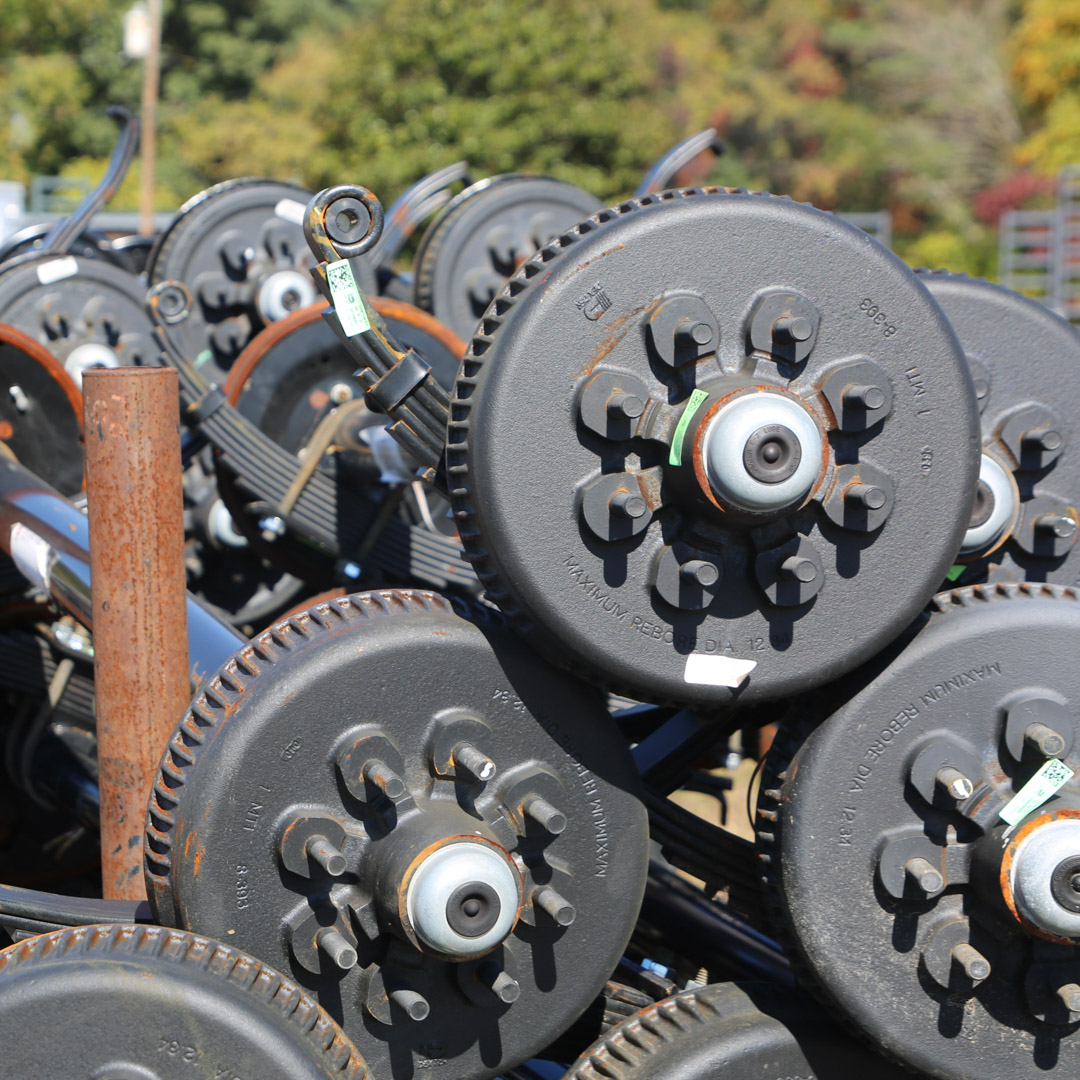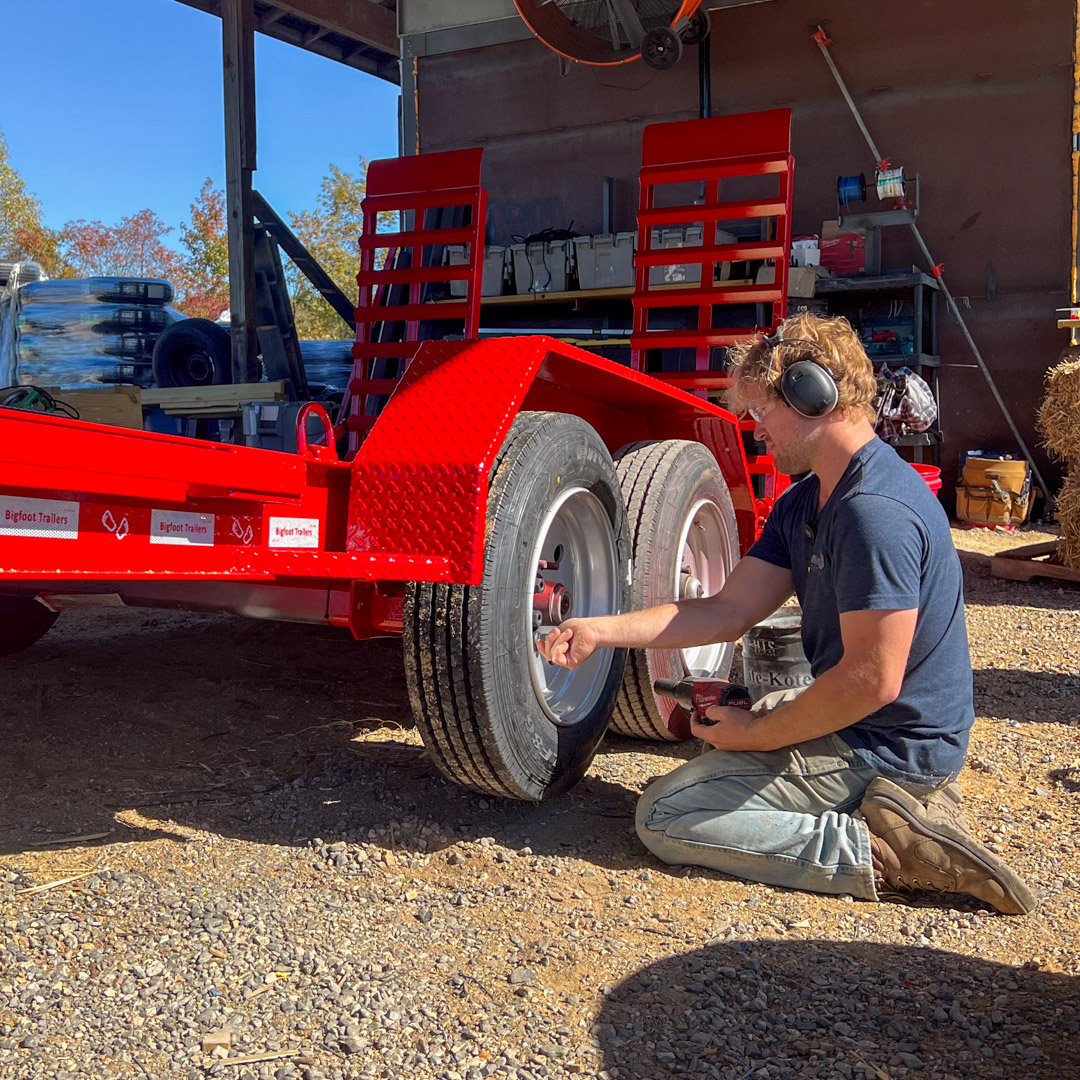Wheeling Through Maintenance: A Guide to Trailer Wheel Bearing Care
Proper care and maintenance of wheel bearings are essential for ensuring the safety and longevity of your Bigfoot trailer. They allow the wheels to rotate freely and support the trailer’s weight. Although Bigfoot handcrafts trailers with the highest quality components, neglecting wheel bearing care can lead to costly repairs, reduced fuel efficiency, and even dangerous situations on the road.
 This guide will walk you through the steps to trailer wheel bearing care so that your car hauler, dump trailer, or other equipment trailer operates at its best and keeps you safe while hauling your load.
This guide will walk you through the steps to trailer wheel bearing care so that your car hauler, dump trailer, or other equipment trailer operates at its best and keeps you safe while hauling your load.
The Importance of Wheel Bearing Care
Proper care and maintenance of wheel bearings are vital. They allow your trailer’s wheels to rotate smoothly, whether navigating a wet winding road in Durham, NC, or wheeling down the highway in Jacksonville, FL.
Regularly inspecting and servicing your wheel bearings can prevent issues such as:
- Overheating
- Excessive wear
- Wheel detachment
These problems can lead to dangerous situations on the road, compromising the safety of you, your passengers, and other motorists. In addition to safety concerns, neglecting wheel bearings can result in costly repairs. Repairing or replacing a damaged wheel bearing can be time-consuming and expensive. Trailer operators can reduce these expenses by following a regular maintenance schedule.
Common Signs of Wheel Bearing Failure
Watching for signs of wheel bearing failure is crucial for maintaining the optimal performance and safety of your Bigfoot trailer. By being aware of these dangers, you can identify potential issues early and take appropriate action to prevent further damage or an accident.
- Strange noise coming from the wheels: If you notice a humming, growling, or grinding sound, especially when turning, it could indicate worn-out or damaged wheel bearings.
- Excessive vibration: The feeling of excessive vibration or looseness in the wheels is another indicator of wheel bearing failure.
- Uneven tire wear: When wheel bearings are faulty, they can cause the tires to wear unevenly, leading to premature tire replacement.
If you notice any of the above signs, it is essential to address the issue promptly. Ignoring wheel bearing problems can further damage other components of your trailer and pose a significant safety risk on the road for you, your payload, and other motorists.
Proper Maintenance of Wheel Bearings
Proper maintenance is critical to ensuring the longevity and performance of your trailer’s wheel bearings. Following a regular maintenance schedule and taking necessary precautions can prevent premature wear and potential failure.
First, be sure to keep your wheel bearings adequately lubricated. Over time, the grease can degrade or become contaminated, leading to increased friction and heat. Regularly inspect the grease levels and replenish or replace them as needed. A good rule of thumb is to grease the wheel bearings every 12 months or 12,000 miles, whichever comes first, unless your trailer’s owner’s manual states otherwise.
 Also, periodically inspect the seals around the wheel bearings for any signs of damage or leaks. The seals absorb moisture, dirt, and other contaminants that can cause premature wear. If you notice any issues, replace the seals immediately to maintain optimal performance.
Also, periodically inspect the seals around the wheel bearings for any signs of damage or leaks. The seals absorb moisture, dirt, and other contaminants that can cause premature wear. If you notice any issues, replace the seals immediately to maintain optimal performance.
Finally, always consider having a professional inspect your wheel bearings at least once a year. They have the expertise and tools to thoroughly assess the condition of your bearings and make any necessary repairs or replacements.
Where to Buy Bigfoot Trailers
Bigfoot Trailers delivers! As a factory-direct manufacturer, we service the entire Eastern United States with locations in Springfield, MA; New York, NY; Cape Coral, FL; Raleigh, NC; and by appointment with retailers in Fort Myers and Marianna, FL. Call toll-free (866) 764-8878 or contact us here for a free quote.




